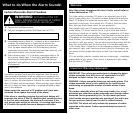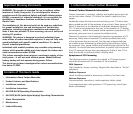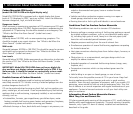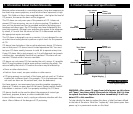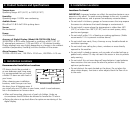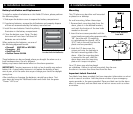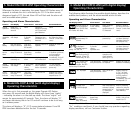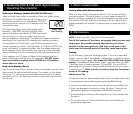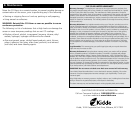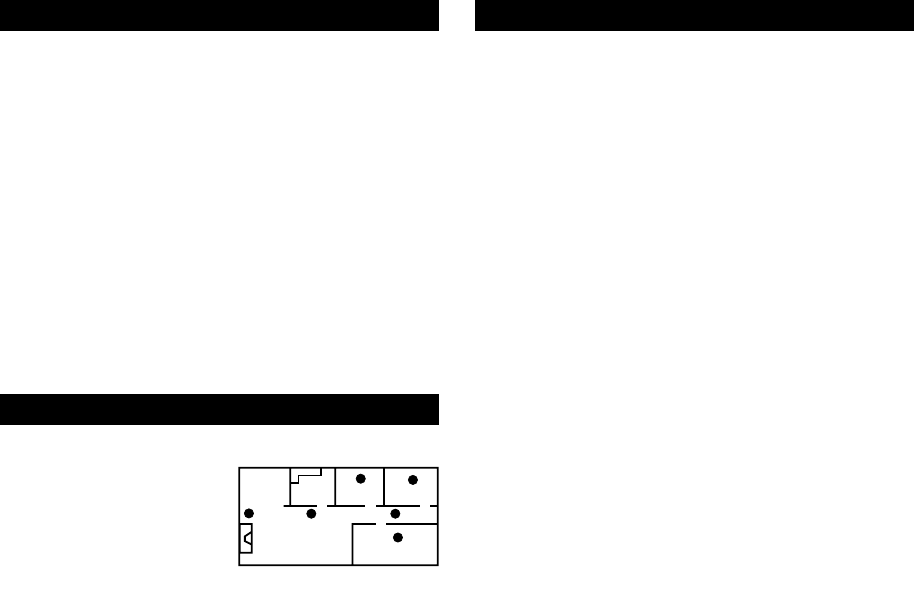
Recommended Installation Locations
CO alarms should be mounted in
or near bedrooms and living areas.
It is recommended that you install
a Kidde CO alarm on each level of
your home.
When choosing your installation
locations, make sure you can hear
the alarm from all sleeping areas. If
you install only one CO alarm in your home, install it near bedrooms,
not in the basement or furnace room.
• When wall mounting, place out of reach of children. Under no
circumstances should children be allowed to handle the CO alarm.
• Placing the alarm at eye level allows for optimum monitoring of the
digital display.
3. Installation Locations
DINING
KITCHEN BEDROOM
BEDROOM
BEDROOM
LIVING ROOM
Recommended Locations
Temperature:
Operating Range: 40°F (4.4°C) to 100°F (37.8°C)
Humidity:
Operating range: 10-95% non-condensing
Audible Alarm:
85+ dB at 10’ @ 3.4±0.5 KHz pulsing alarm
Sensor:
Electrochemical
Power:
3-AA Batteries
Accuracy of Digital Display: (Model KN-COPP-B-LPM Only)
30-999 PPM +/-30% when measured in conditions of 80° F (+/- 10°
F), atmospheric pressure +/- 10% and 40% +/- 3% relative humidity.
Display readings may vary slightly depending on changes in the ambient
condition (temperature, humidity) and the condition of the sensor.
Alarm Response Times:
70 PPM = 60-240 min., 150 PPM = 10-50 min., 400 PPM = 4-15 min.
2. Product Features and Specifications
Locations To Avoid
IMPORTANT: Improper location can affect the sensitive electronic com-
ponents in this alarm. To avoid causing damage to the unit, to provide
optimum performance, and to prevent unnecessary nuisance alarms:
• Do not install in kitchens, garages or furnace rooms that may expose
the sensor to substances that could damage or contaminate it.
• Do not install in areas where the temperature is colder than 40°F
(4.4°C) or hotter than 100°F (37.8°C) such as crawl spaces, attics,
porches and garages.
• Do not install within 5 ft. of heating or cooking appliances. (Kidde
recommends 15 ft. to prevent nuisance alarms).
• Do not install near vents, flues, chimneys or any forced/unforced air
ventilation openings.
• Do not install near ceiling fans, doors, windows or areas directly
exposed to the weather.
• Do not install in dead air spaces, such as peaks of vaulted ceilings or
gabled roofs, where CO may not reach the sensor in time to provide
early warning.
• Do not install this unit near deep-cell large batteries. Large batteries
have emissions that can cause the alarm to perform at less than
optimum performance.
• Do not obstruct the vents located on the alarm. Do not place the
alarm where drapes, furniture or other objects block the flow of air
to the vents.
3. Installation Locations




